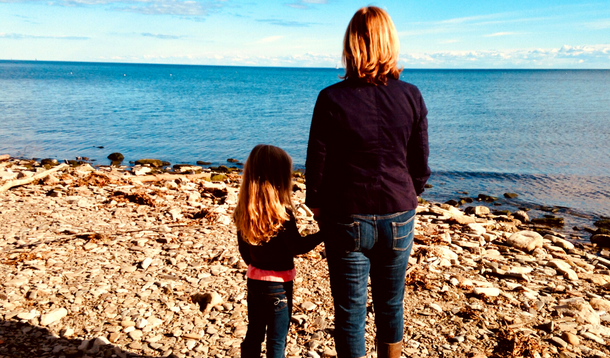
The first time I called 911 was when I truly understood the heartbreak of being Avery’s mom.
I carried her downstairs to wait for the ambulance and found my young son by the front door. He’d heard me screaming that his baby sister wasn’t breathing. He was terrified. I explained what was about to happen so he'd be prepared when paramedics arrived. I instructed him to keep out of their way. He pressed his little body flat against the wall and said, “Mummy, you don’t have to worry about me. Just please let Avery be okay.”
Paramedics brought her back to life on our living room couch.
This was the first of many frightening episodes where status epilepticus seizures came for my daughter.
Seizures are part of Avery’s chromosome disorder. When she was diagnosed at 8 months old, we were stunned but not surprised. We knew something wasn't right, even though every doctor to that point told us we were overreacting.

We were devastated when the geneticist presented us with a long list of developmental disabilities associated with her syndrome. We’re not supposed to confess our grief as if saying we're sad means we don't love our children. Or that we'd fix them if we could. We love our kids. They aren't broken, and they don’t need fixing. Would I erase the threats to my daughter's health? Of course. Would I obliterate the hate that threatens her well-being as a disabled person living in an ableist world? In a hot minute, I would.
Acknowledging our grief doesn’t mean that parenting a child with developmental disabilities isn’t joyful and fulfilling. It absolutely is. And it’s difficult. Not every minute of every day, but there are definitely times when the anxiety can bring us to our knees.
Have you seen this powerful video from the Petro-Canada CareMakers Foundations’ 24 Hours of Care campaign? I watched it and started bawling. I felt seen. The video’s message that the caring never stops is so painfully true.
The majority of the mental and physical load falls on me as Avery’s primary caregiver. I left my job to care for her full-time while my husband supports our family. That’s another aspect of caregiving that most don’t speak about—the financial burden of lost income, expensive medications and devices for starters. It’s not easy, but we make it work. What other option do we have?
Parenting a child with disabilities comes with all the traditional mom responsibilities plus a calendar bursting with doctor and therapy appointments. I joke that I should paint my car yellow because I’m essentially a taxi driver. I’m never off duty. This can be frustrating for friends or family who feel disappointed when they don’t get our full attention or when we decline invitations. They claim to understand, but this isn’t always the case.
Whenever my daughter is experiencing a medical setback, friends check on us and send over gift cards or care packages. But when the dust settles, the calls dwindle as people go back to their lives. They don't realize that the stress continues far beyond that particular crisis.
I received a text from a friend telling me, “You’re not fun anymore." Over coffee, another friend shared that she felt sorry for me. "Your life is really hard," she said. "I'm sooo sad for you." How is having a life full of love and meaning sad?

And another friend complained I never made time for her, pointing out that her problems were just as big as mine. I wasn't aware there was a contest. Either way, we both lost because our friendship ended abruptly after that conversation.
Caregivers are skilled at taking care of everyone except maybe themselves. We often put our needs last, not because we’re exceptional humans, but after caring for our kids or aging parents, we’re exhausted. Over 8 million Canadians are living this right now.
So why don’t we just ask for help? For me personally, I don't want to be a burden. I downplay the challenges and tell everyone I’m fine. Everything is fine. Caregivers can be stubbornly stoic.
Family caregivers devote their lives to helping their loved ones. It can be a challenging role that most of us step into unexpectedly to provide critical support, often without any training.
I’m grateful for organizations like the Petro-Canada CareMakers Foundation. It’s working to bring awareness about the reality family caregivers like me live with, and are inspiring Canadians to help.
They’re raising funds that enable the work of charitable organizations supporting Canadian family caregivers and collaborating to develop new innovative programs and tools. I feel like we’ve been invisible for so long and society is finally recognizing we need help. Check out 24hoursofcare.ca and share the link with any caregivers you know in your life.
Caregivers need support… even when we smile and claim we have it all under control.
The other day I was out running errands about a block from home, I heard sirens and saw an ambulance racing toward my house. I froze and waited to see if it would turn down my street.
Thankfully it kept going. I exploded into tears. I cried the rest of the way home and carried on sobbing into the house. Trauma can sneak up on us like that. The emotional toll of caring for a loved one is heavy.
So check on the caregivers. Even if we don’t accept your help today, we’re grateful to know we can count on you tomorrow.

The goal of Petro-Canada CareMakers Foundation is to support family caregivers while inspiring the rest of Canada to do the same.